U.S.-Taliban deal: India in strategic role
India should stop looking at Afghanistan through the Pakistan prism and be a major contributor in the development of peace and prosperity in the country
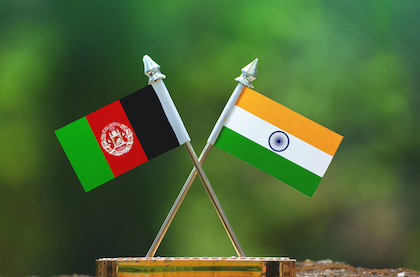 Courtesy: Shutterstock
Courtesy: Shutterstock
India should stop looking at Afghanistan through the Pakistan prism and be a major contributor in the development of peace and prosperity in the country
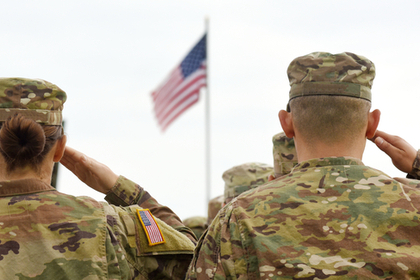 Courtesy: Shutterstock
Courtesy: Shutterstock
The signing of an agreement between the U.S. and the Taliban on February 29 may result in the withdrawal of U.S. troops from Afghanistan, which is contingent upon the Taliban’s adherence to certain conditions. The end of the West’s 19-year-long Afghan campaign – if Pakistan does not turn spoiler – is of vital interest to India
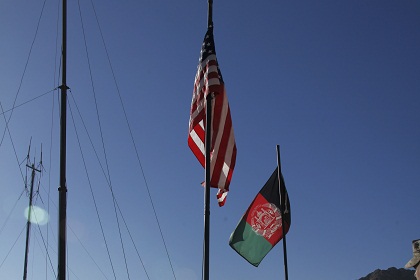 Courtesy: Shutterstock
Courtesy: Shutterstock
The United States’ decision to rebuild Afghanistan’s ring road was a change of strategy from its earlier focus on countering terrorism. But the road remains in a state of disrepair because the U.S.’ commitment to the cause has wilted
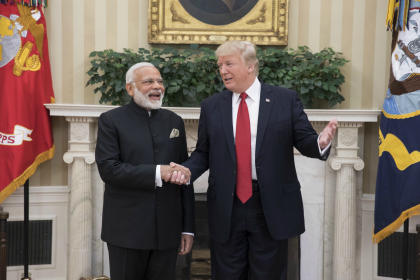 Courtesy: MEA Flickr
Courtesy: MEA Flickr
The imperative for India to move away from its non-aligned posture is now, especially if it wants to be consequential in the global reordering underway. This will play out in the contention between the U.S. on one side, and China and Russia on the other.
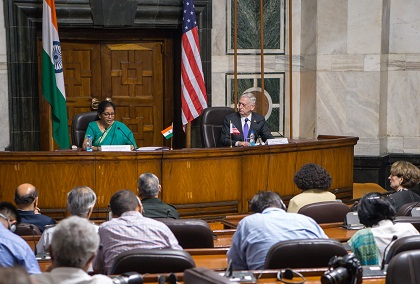 Courtesy: Jim Mattis/ Flickr
Courtesy: Jim Mattis/ Flickr
India and the Trump administration are on a mutually appreciative footing. Two significant visits have given the bilateral a renewed focus and both countries are seeking ways to put their strategic and political convergence into practice
 Courtesy: Western Naval Command
Courtesy: Western Naval Command
China has expanded its presence in the Indian Ocean Region. President Xi Jinping has abandoned Deng Xiaoping’s conciliatory posture for an aggressive, money-fuelled search for super power status
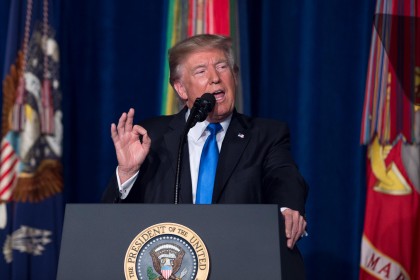 Courtesy:
Courtesy:
In yet another policy flip, U.S. President Trump announced a new strategy for Afghanistan and South Asia. While committing more troops to the region, he called out Pakistan as a 'safe harbour' for terrorism and called on India to do more. Ambassador Neelam Deo, Director at Gateway House, joins us to discuss the implications of this new direction and what it means for India.
 Courtesy: Wikipedia
Courtesy: Wikipedia
A resurgent Taliban has turned a hopeful declaration by the Obama administration into a premature one. The levels of U.S. troops stationed in Afghanistan, currently at 9,800, are expected to increase as a result. But with more than half a trillion dollars spent trying to stabilize the problem, perhaps it’s time to rethink the Af-Pak region.
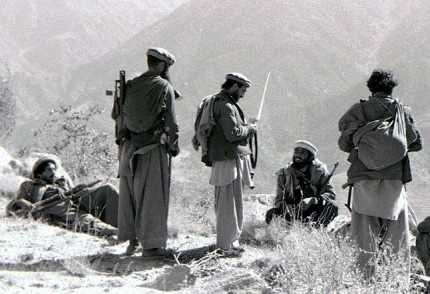 Courtesy: Erwin Franzen/Wikimedia
Courtesy: Erwin Franzen/Wikimedia
The August attack in Kabul and the now public disclosure of the death of Taliban leader Mullah Omar has caused Afghan President Ashraf Ghani to shift in outlook towards Pakistan. The "Pakistan-led" peace process is now tumbling like a house of cards backed implicitly by the United States.
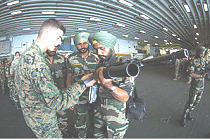 Courtesy: Joshua Martin
Courtesy: Joshua Martin
U.S. defence secretary Chuck Hagel’s visit is the third in a flurry of visits by top American officials before the scheduled Modi-Obama meet in September. Hagel’s visit will aim to enhance an already well-established defence-trade partnership and allay fears of the Pentagon’s bias towards Pakistan